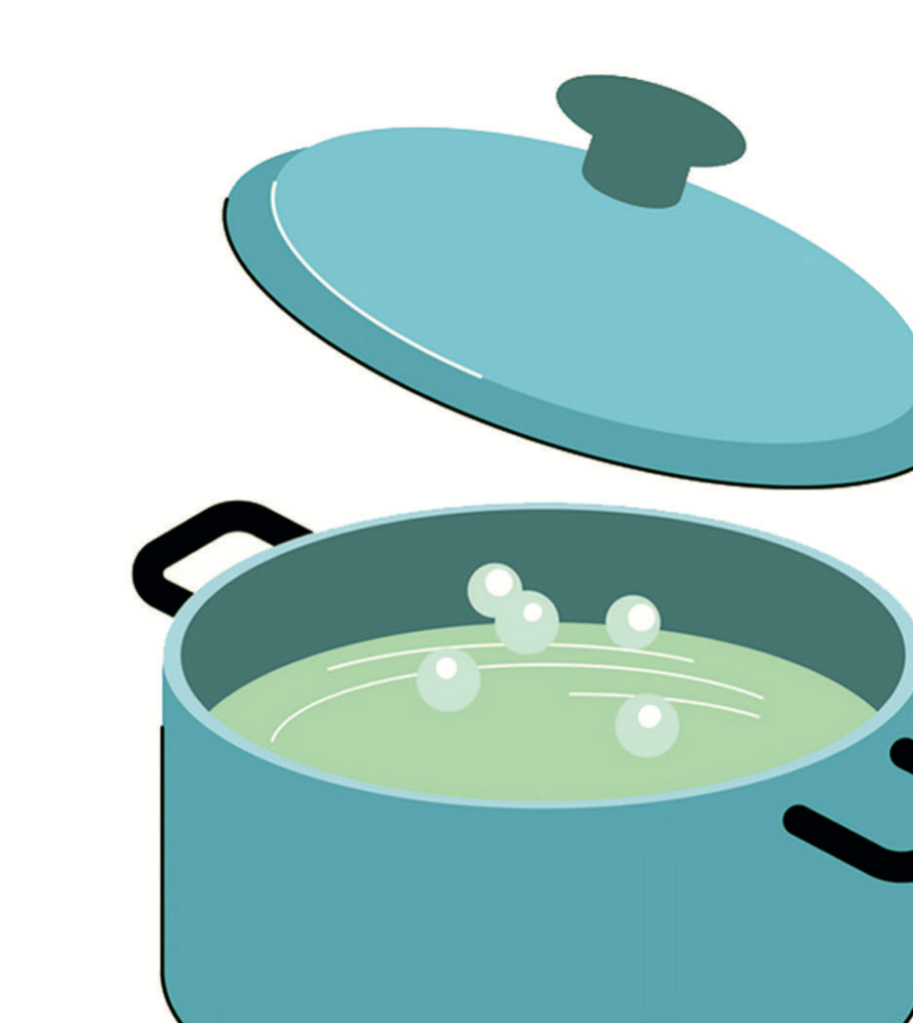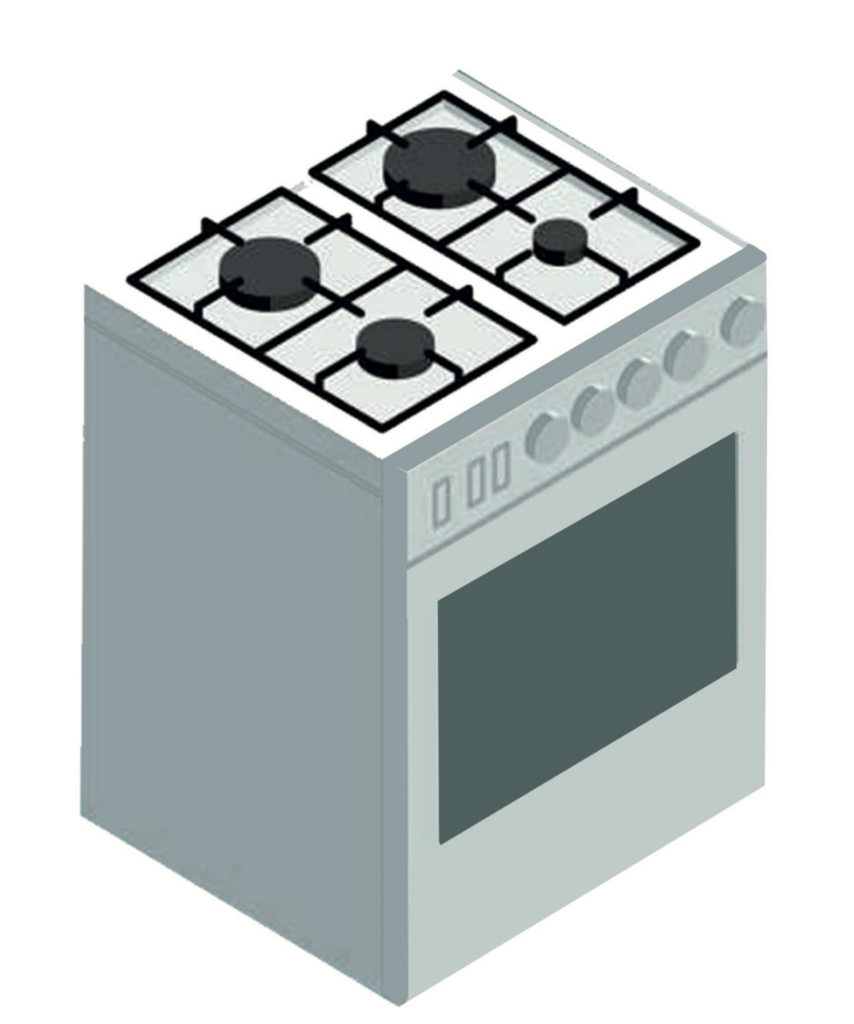Hints, tips and hacks to up your cooking game.
In issue five of the magazine, chef and educator Ruth Cooper shared some top tips to help you work and cook like a pro. In fact, Ruth had so many brilliant ideas and hacks that we didn’t have room to print them all in the mag. So here are some more great ways you can make your kitchen safer, your cooking more efficient and your food more delicious! Illustrations by Richard Holland.
Look, work, cook and bake like a pro.
Tongs are terrific.
Tongs are basically a heatproof extension of your hand: you can grab things from the oven, turn things over in a hot pan, and serve spaghetti or salad one-handed and with ease. If you can afford to buy some chef’s tongs, you won’t regret it.
Take time to tidy up.
Put a bowl or pot for scraps next to your chopping board, and wipe as you go. Keeping clean and tidy will help you work more safely and efficiently.

Most recipes are just a guide.
Once you feel confident with basic techniques, don’t be afraid to experiment. Swap ingredients, add extras and play around with combinations. Most cookbooks would have you believe you need to stick 100% to the recipe: this is not the case, especially for a competent cook. Even though baking recipes are based on weight ratios, there is nothing to stop you having a play with the ingredients once you have tried and tested a recipe.

Oven temperatures are not always gospel.
Most savoury dishes will cook happily at a range of temperatures… you just have to adjust the cooking time accordingly. This means you can cook multiple dishes at once, saving money and time. If you’re baking, you do need accurate temperatures, though.
Trust your senses.
Don’t forget that you are in charge of your own kitchen: trust your senses over a recipe (writers can and do make mistakes). Smelling, tasting and watching are the best ways to know if your food is cooking correctly. Use your senses to work out whether ingredients have gone off (dates aren’t always accurate).
All about eggs.
Eggs get a special set of tips, all of their own – these little cornerstones of cooking are often misused and misunderstood.
Don’t keep your eggs in the fridge.
They just need to be stored at a relatively stable ambient temperature. Refrigerated eggs are more difficult to cook with (and they take longer!) Always use room temperature eggs for cooking.
Don’t wash eggs.
Eggs are covered in a natural “bloom” which prevents any bacteria entering through their porous shell. Washing eggs will remove this barrier and the eggs will spoil or take on flavours from the surrounding atmosphere. For the same reason, wash your hands after handling raw eggs – the shells are not sterile.

The lion mark means they are salmonella-free.
If your eggs have the UK lion mark, it is safe to eat raw eggs or use them in recipes. Eggs with UK lion marks come from chickens that have been vaccinated against salmonella. There could still be bacteria on the shell, but the egg inside is guaranteed salmonella-free.
Add a little vinegar to the water when poaching eggs.
The acid will help to set the egg and produces a better-shaped result. Don’t add salt, though – it will have the opposite effect.

Buy mixed-size free-range eggs.
They’re cheaper and a higher-welfare option than boxes of just one size. If you’re baking and you need a certain size egg, weigh your eggs (in their shells). A quick Google will tell you the weight of “large” or “medium” eggs, and you can work out what you’ll need for a substitution.
Put a lid on your frying pan.
When frying your eggs, a lid will help to cook the yolk and the top of the white more quickly. This means you don’t need to baste the egg and you won’t end up with an over-crispy bottom!



